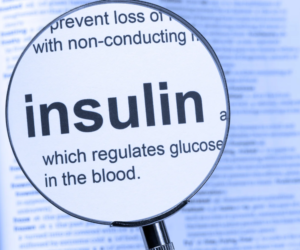Do you often feel drained and unable to perform daily activities? Chronic fatigue can drastically reduce your quality of life, making even the simplest tasks feel like mountains to climb. While temporary tiredness from stress or physical exertion is normal, persistent fatigue is a sign of an underlying issue that needs attention.
What is Chronic Fatigue?
Chronic fatigue happens when your cells’ mitochondria, the tiny powerhouses that produce energy, are not working correctly. These organelles convert nutrients from food into adenosine triphosphate (ATP), the energy currency your body uses. When this process is disrupted, your body can’t produce enough energy, leading to constant tiredness.
Why Mitochondria Matter
Mitochondria are essential for turning glucose and other nutrients into energy. When they function properly, they help you stay energized throughout the day. However, various factors can impair mitochondrial function, leading to chronic fatigue. Here are some of the main causes:
1. Nutritional Deficiencies
- Dietary Insufficiency: A diet lacking in essential vitamins and minerals can lead to deficiencies, which affect energy production. Key nutrients include B vitamins, vitamin D, iron, magnesium, zinc, and glutathione.
- Infections: Parasites and other infections can steal nutrients from your body, leading to deficiencies and chronic inflammation.
- Malabsorption: Conditions like Small Intestinal Bacterial Overgrowth (SIBO) and leaky gut prevent proper nutrient absorption, even if you have a balanced diet.
2. Parasites
Parasites disrupt your gut health, leading to symptoms like fatigue, brain fog, and weakness. They can create biofilms, which protect them from detection and treatment.
3. Lyme & Co-infections
Lyme disease, caused by Borrelia burgdorferi, can mimic various illnesses, making it hard to diagnose. Co-infections with bacteria like Bartonella and Babesia can worsen symptoms.
4. Mold and Mycotoxins
Exposure to mold and mycotoxins can cause symptoms like chronic fatigue, brain fog, insomnia, and respiratory issues. Mold exposure is particularly harmful for those with Lyme disease.
5. Viruses
Dormant viruses can reactivate due to stress or other infections, contributing to chronic fatigue.
6. GI Infections and Imbalanced Microbiome
Infections and an imbalanced gut microbiome can lead to oxidative stress and inflammation, contributing to fatigue.
7. Heavy Metal Toxicities
Toxic metals like arsenic, cadmium, lead, mercury, and aluminum cause systemic inflammation and mitochondrial dysfunction, leading to fatigue.
8. Breast Implants
Symptoms associated with breast implants include chronic fatigue, joint pain, anxiety, and brain fog.
9. Infected Root Canals
Pathogens in root canals can spread throughout the body, causing systemic inflammation and fatigue.
10. Blocked Drainage Pathways
Detoxification pathways like the colon, kidneys, liver, and lymphatic system must function properly to remove toxins. Blockages can lead to toxin buildup and fatigue.
Tips to Overcome Chronic Fatigue
- Focus on Anti-Inflammatory Foods: Incorporate foods rich in omega-3 fatty acids, such as salmon, walnuts, and flaxseeds, to reduce inflammation.
- Micronutrient-Rich Smoothies: Blend leafy greens, berries, chia seeds, and a scoop of plant-based protein powder for a nutrient-packed start to your day.
- Fermented Foods: Add kimchi, sauerkraut, and kefir to your diet to boost your gut health with natural probiotics.
- Adequate Hydration: Drink a glass of water first thing in the morning with a squeeze of lemon to kickstart your metabolism and support liver detoxification. Drink at least half of your body weight in oz of pure water every day.
- Daily Probiotic Supplement: Choose a high-quality probiotic supplement with multiple strains and a high CFU count to support gut microbiota diversity.
- Prebiotic-Rich Foods: Include foods like garlic, onions, and asparagus that feed healthy gut bacteria.
- At-Home Testing Options: Test, Don’t Guess – Utilize various at-home testing kits to monitor nutrient levels, inflammation markers, and thyroid function. Feel free to reach out for custom recommendations.
- Symptom Journal: Keep a detailed log of your daily symptoms, diet, and activities to help your healthcare provider identify patterns and triggers.
- Mindfulness Meditation: Practice 10 minutes of mindfulness meditation each day using apps like Headspace or Calm to reduce stress and improve mental clarity.
- Nature Walks: Spend time in nature walking or hiking to reduce stress and improve mood through natural exposure to sunlight and fresh air.
- Tailored Exercise Routine: Incorporate low-impact exercises like yoga, tai chi, or swimming to maintain physical activity without overexertion.
- Micro Workouts: Break your exercise into short, manageable sessions throughout the day to avoid fatigue and stay active.
- Sleep Hygiene Practices: Establish a bedtime routine that includes turning off electronic devices an hour before bed and using blackout curtains to create a restful environment.
- Nutritional Support for Sleep: Consider supplements like magnesium glycinate, herbs, valerian, hops, chamomile, or melatonin (after consulting with a professional) to improve sleep quality.
- Air Quality Improvement: Use HEPA filters in your home to reduce airborne toxins and allergens that can contribute to fatigue.
Regain Your Energy and Vitality
Living with chronic fatigue can be overwhelming, but taking steps to understand and address the root causes can make a significant difference. You deserve to feel energized and enjoy your life fully. If fatigue is holding you back, let’s change that together.
Schedule a free consultation with me today, and we’ll work to uncover what’s behind your chronic fatigue and create a plan to help you feel vibrant and alive again.








